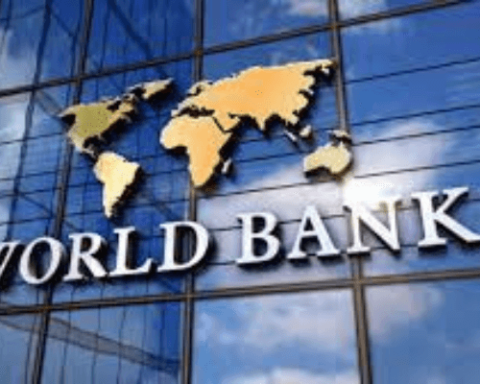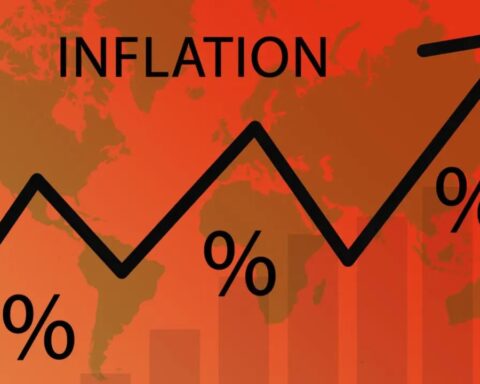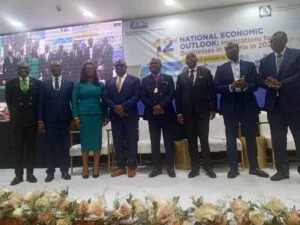Tinubu committed to liberalised market – Edun
Chairman of Dangote Refinery, Alhaji Aliko Dangote, has said that his refinery has sufficient petrol to satisfy domestic supplies for up to 12 days but that the NNPC and others are not buying, apparently preferring to import the product for the lucrative profits that come with such imports.
He made the disclosure while fielding questions from State House Correspondents after a meeting between President Bola Tinubu and members of the crude oil and refined products sales in the local currency implementation committee.
The committee was led by the Minister of Finance and Coordinating Minister of the Economy, Mr Wale Edun.
According to Dangote, the refinery in Lagos has the capacity to produce over 30 million litres of petrol daily, contingent on demand from the Nigerian National Petroleum Company (NNPC) and local retailers.
“We have 500 million litres in our tanks right now,” Dangote stated. “Even without imports or production, this stock can sustain the country for more than 12 days. We are more than ready to supply a minimum of 30 million litres per day and ramp up production as needed.”
He emphasised that the refinery is fully operational and capable of meeting local consumption needs.
Despite these assurances, fuel queues persist across major cities in Nigeria, leading to public frustration.
When asked about the discrepancy between his claims and the reality on the streets, Dangote explained that his role as a producer does not extend to retail.
“I am not in the business of retail,” he said. “If I were, you could hold me accountable. Retailers need to come forward and collect the fuel we have available.”
Dangote urged NNPC and other marketers to engage with his refinery. “We have what they need,” he insisted. “If they come and pick up the fuel, you will not see any queues at filling stations.”
He also pointed out that maintaining large quantities of fuel in storage incurs significant costs.
“It’s costing me money every day to keep this fuel in our tanks,” he noted.
The businessman expressed confidence that if retailers were willing to collect fuel from his facility, it would significantly alleviate the current shortages.
“If they have been able to import 55 million litres, I see no reason why they wouldn’t come and collect our product for distribution,” he remarked.
Dangote expressed optimism following what he described as a productive meeting with President Tinubu regarding the future of Nigeria’s fuel supply.
He highlighted the importance of the discussions, which centered on utilising a market-determined exchange rate for crude oil and petroleum products.
“You heard what the chairman of the committee on Naira, crude, and petroleum products said,” Dangote noted. “We had a very good meeting where we agreed that NNPC will buy crude just like any other marketer. This is a significant step forward.”
Dangote revealed that approximately 300,000 barrels of crude oil have been allocated to Trigo Refining and Petrochemical Company for the production of various petroleum products, including liquefied petroleum gas (LPG), petrol, aviation fuel, and more.
He stressed that these developments would not only stabilize fuel supply but also revive several industries reliant on petroleum products.
He said the meeting also addressed the role of Afreximbank as a settlement bank between Dangote and NNPC, facilitating smoother transactions in the crude oil market.
“This initiative will breathe life into many industries, from plastics to aviation,” he stated.
Dangote underscored the necessity of maintaining macroeconomic reforms initiated by President Tinubu, particularly regarding market pricing for foreign exchange.
“No project should roll back these key reforms,” he asserted. “Once we have a stable pricing mechanism, it empowers both local businesses and foreign investors.”
While expressing confidence in the refinery’s ability to meet local demand, Dangote acknowledged that current consumption levels may fluctuate due to rising prices.
“With our capacity ramping up to about 420,000 barrels per day, we will be able to satisfy the market fully,” he explained.
He also indicated that as NNPC refineries come on stream in the future, Nigeria could become one of the largest exporters of petroleum products globally.
“Mr. President has assured us of his support for domestic industries,” he added. “This collaboration will create a win-win situation for all stakeholders involved.”
Earlier, Edun shared insights from the productive meeting with President Tinubu regarding the implementation of a groundbreaking initiative to sell crude oil to local refiners in Naira.
According to him, this initiative, which has received full endorsement from the Federal Executive Council, aims to stabilize the petroleum market and enhance local production capabilities.
“We had a session with His Excellency Mr. President to review the implementation of this bold initiative,” Edun stated. “It allows local refiners to purchase crude oil and sell their products in Naira to the Nigerian public.”
He credited the Dangote Group’s substantial investment in a refinery with a capacity of 650,000 barrels per day as a key enabler of this initiative.
Edun emphasised that the implementation committee has been diligently working with various stakeholders, including regulatory bodies such as the Nigerian Midstream and Downstream Petroleum Regulatory Authority (NMDPRA) and the Nigerian National Petroleum Corporation (NNPC), to ensure the initiative’s success.
“What we have achieved is the establishment of market pricing for petroleum products,” he explained. “This, coupled with market pricing for foreign exchange, sets our economy on a path toward industrialization.”
The finance minister highlighted the broader economic implications of this initiative, stating that it would provide essential raw materials not only for agriculture but also for industries such as chemicals, textiles, and building materials.
“This is part of Mr. President’s strategy to create favorable conditions for private sector investment, job creation, and economic growth,” he noted.
Additionally, Edun pointed out that the new pricing structure would help restore NNPC’s financial health, enabling it to provide better funding for federal, state, and local governments.
“This will allow them to meet their obligations, including salary payments and infrastructure development,” he added.
While acknowledging that there are still challenges ahead, Edun expressed confidence in Nigeria’s trajectory toward industrial development.
“Although it’s early days and much work remains, we now see a clear path toward modernizing our economy,” he remarked.
He also reassured stakeholders of the government’s commitment to overcoming initial obstacles related to the local sale of crude in Naira.
“There is determination from the very top downwards for this initiative to succeed,” he affirmed.
Those in attendance at the meeting with President Tinubu included the Group Chief Executive Officer (GCEO) of the Nigerian National Petroleum Company Limited (NNPCL), Mele Kyari; the Chairman of the Federal Inland Revenue Service (FIRS), Zacch Adedeji; and the Governor of the Central Bank of Nigeria (CBN), Yemi Cardoso.
Others were the Authority’s Chief Executive (ACE) of the Nigerian Midstream and Downstream Petroleum Regulatory Authority (NMDPRA), Farouk Ahmed and the Commission Chief Executive (CCE) of the Nigerian Upstream Petroleum Regulatory Commission (NUPRC), Gbenga Komolafe.



























